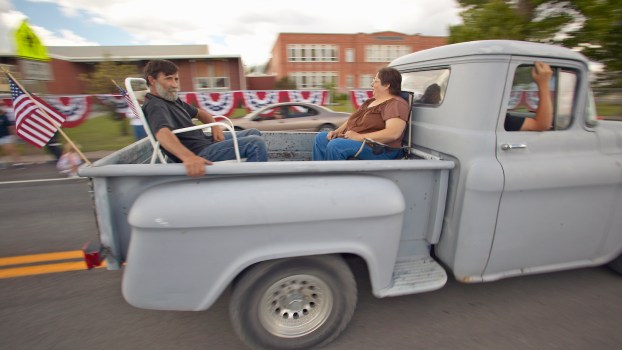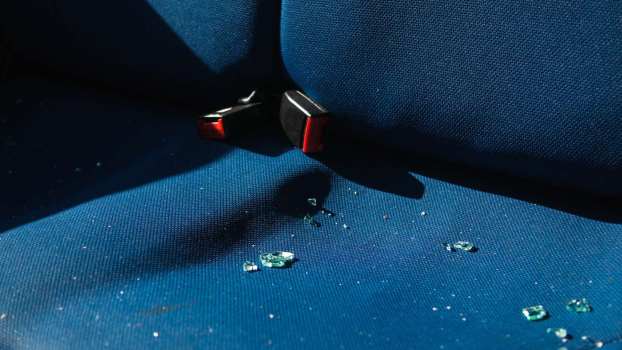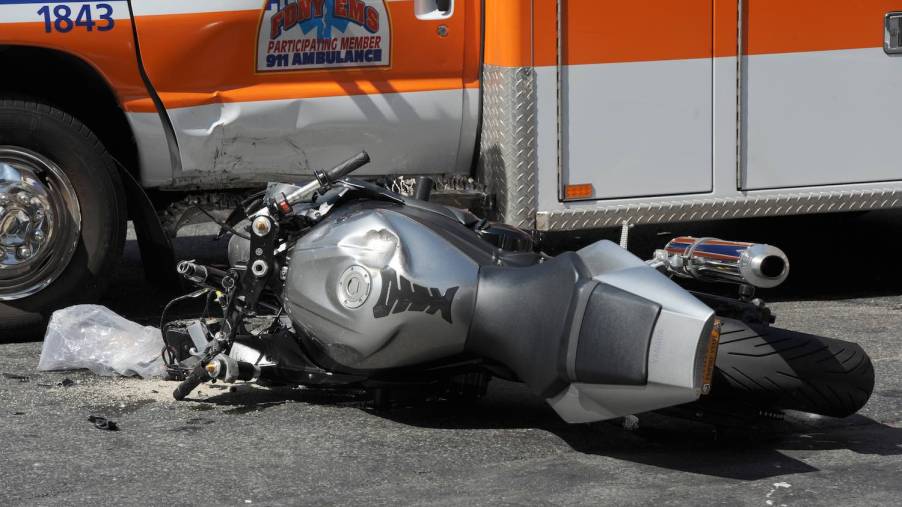
These 3 States Allow Anyone to Ride a Motorcycle Without A Helmet
Carsickness is irrefutable evidence that blasting down the highway at 60 MPH is enough to break the fragile human brain. It doesn’t take a genius to figure out how much more damage the pavement of that highway can do to the same brain. Human bodies just aren’t built for motorcycle speeds. Yet there are still motorcyclists who insist on rocketing around without a skid lid. Only New Hampshire, Illinois, and Iowa allow any motorcyclist to cruise around without a brain bucket. But 30 more state laws allow motorcycle operators or passengers over a certain age to leave the helmet at home.
Which states require all motorcyclists to wear helmets?
Only sixteen states require anyone on a motorcycle to wear a helmet: Alabama, California, Georgia, Louisiana, Maryland, Massachusetts, Mississippi, Nevada, New Jersey, New York, North Carolina, Oregon, Vermont, Virginia, Washington, and West Virginia. Washington D.C. (the sort-of-state) has the same law.
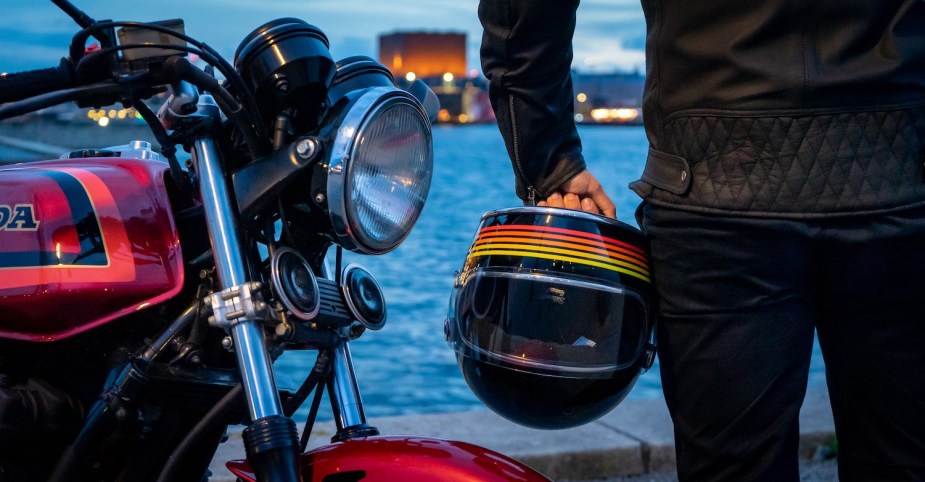
The federal government tried to pass nationwide motorcycle helmet laws several times. In fact, by the late 1960s, more states had motorcycle helmet laws than do today. Yup, half a century ago, lawmakers understood how important protecting your noggin is. So what happened?
According to the Motorcycle Law Group, the 1966 National Traffic and Motorcycle Vehicle Safety Act offered states federal money to adopt regulations around drunk driving, set belts, and motorcycle helmets. The only state that didn’t pass a motorcycle helmet law in response was California (back when the West was wild).
The American Motorcycle Association lobbied the government to repeal the motorcycle helmet part of the NTMVSA. And in 1974, it worked. Many states then repealed their helmet laws.
In 1989, the government passed the National Highway Fatality and Injury Reduction Act. This threatened to withhold up to 10% of federal highway money from states without motorcycle helmet laws. Again, organizations such as the AMA lobbied to change the law and were able to reduce that 10% to 3%. So today, we have a confusing tangle of motorcycle helmet laws that can hurt your head (but not nearly as much as crashing without one)!
Which states require young motorcyclists to wear helmets?
Many states allow adults operating motorcycles to choose whether or not to wear helmets but require younger people to wear a helmet on a motorcycle. Some states specify that older riders with a learner’s permit must wear helmets.
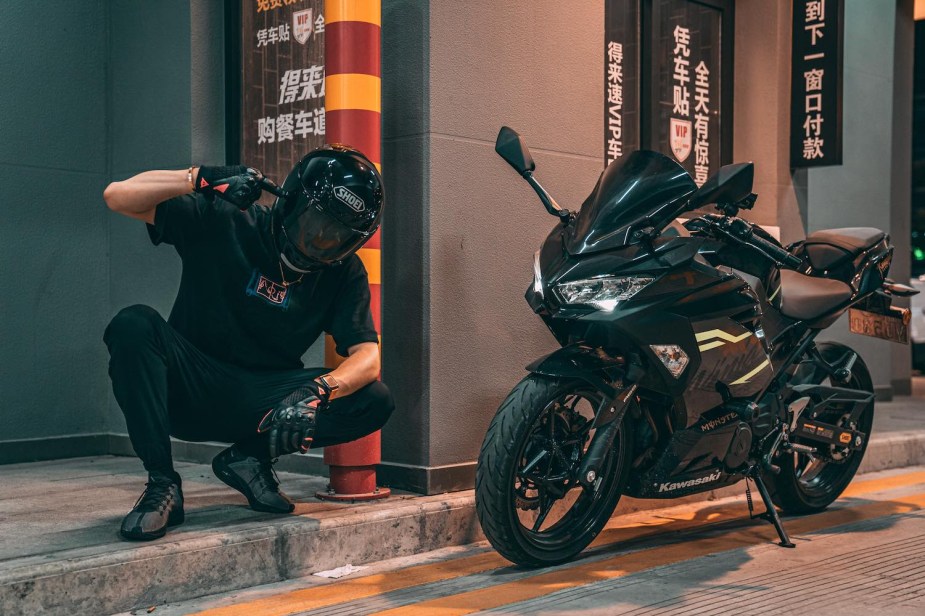
Any rider or passenger 17 or younger must wear a motorcycle helmet in the following states: Arizona, Colorado, Hawaii, Idaho, Indiana, Kansas, Maine, Minnesota, Montana, New Mexico, North Dakota, Ohio, Oklahoma, South Dakota, Wisconsin, and Wyoming. In Alaska, a motorcycle operator who is 17 or younger must wear a helmet, but a passenger of any age must wear a helmet. In Maine, anyone riding for one year or less must wear a helmet, regardless of age. In Delaware law, the cutoff for wearing a helmet is 18, but every motorcycle rider must carry a helmet.
Anyone on a motorcycle who is 20 and younger must wear a helmet in the following states: Arkansas, Florida, Kentucky, Michigan, Nebraska, Pennsylvania, Rhode Island, South Carolina, Texas, and Utah. But in Florida, you can only ride helmetless if you carry proof of medical insurance. So you know, the hospital can keep you alive after a crash. And in Kentucky, riders with learner’s permits must wear a helmet regardless of age. Missouri is the only state with a cutoff of 25–if you’ve graduated from your motorcycle instruction permit.
Should you wear a motorcycle helmet?
Yes. Yes. Yes. Please yes. According to the IIHS, unhelmeted riders are three times more likely to sustain traumatic brain injuries during a crash. Even if you are a cautious rider, you can be hit by other drivers who are not paying attention. Even if you are only moving at a few miles an hour, being T-boned by a car and knocked onto the pavement can do serious damage.
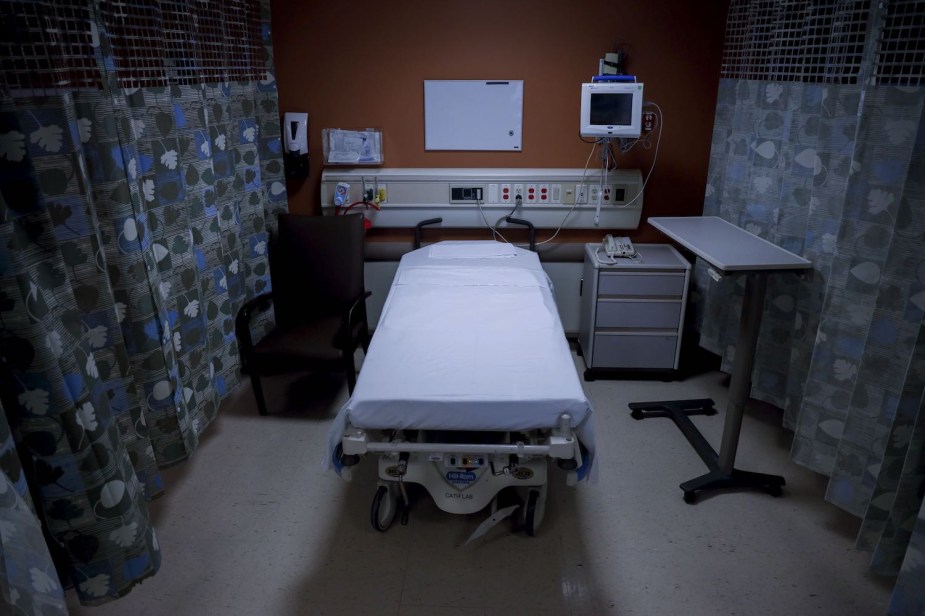
I’ve had friends and family involved in motorcycle accidents and was very thankful they were wearing a helmet. I’m here to tell you even someone so thick-skulled that they think riding without a helmet is a good idea, they aren’t too thick-skulled to suffer horrific brain injury.
Since you’re likely on this page because you asked online whether you should wear a motorcycle helmet, I’ll assume your mother isn’t there right now to tell you to wear your helmet. So, I’ll quote my mother (who has been riding motorcycles for over 30 years):
“You might say ‘I’ll just die,’ but you might also not die. You might end up some emasculated vegetable with nurses changing your diapers. Do you really want that? I didn’t think so. Dress for the slide, not for the ride, m_____f_____’s!”
Henry Cesari’s Mother
So don’t be a dumbie. Listen to my mom and wear your damn motorcycle helmet.
Next, find out which states allow your passengers to drink while you drive, or see common myths on motorcycle helmet safety debunked in the video below:
